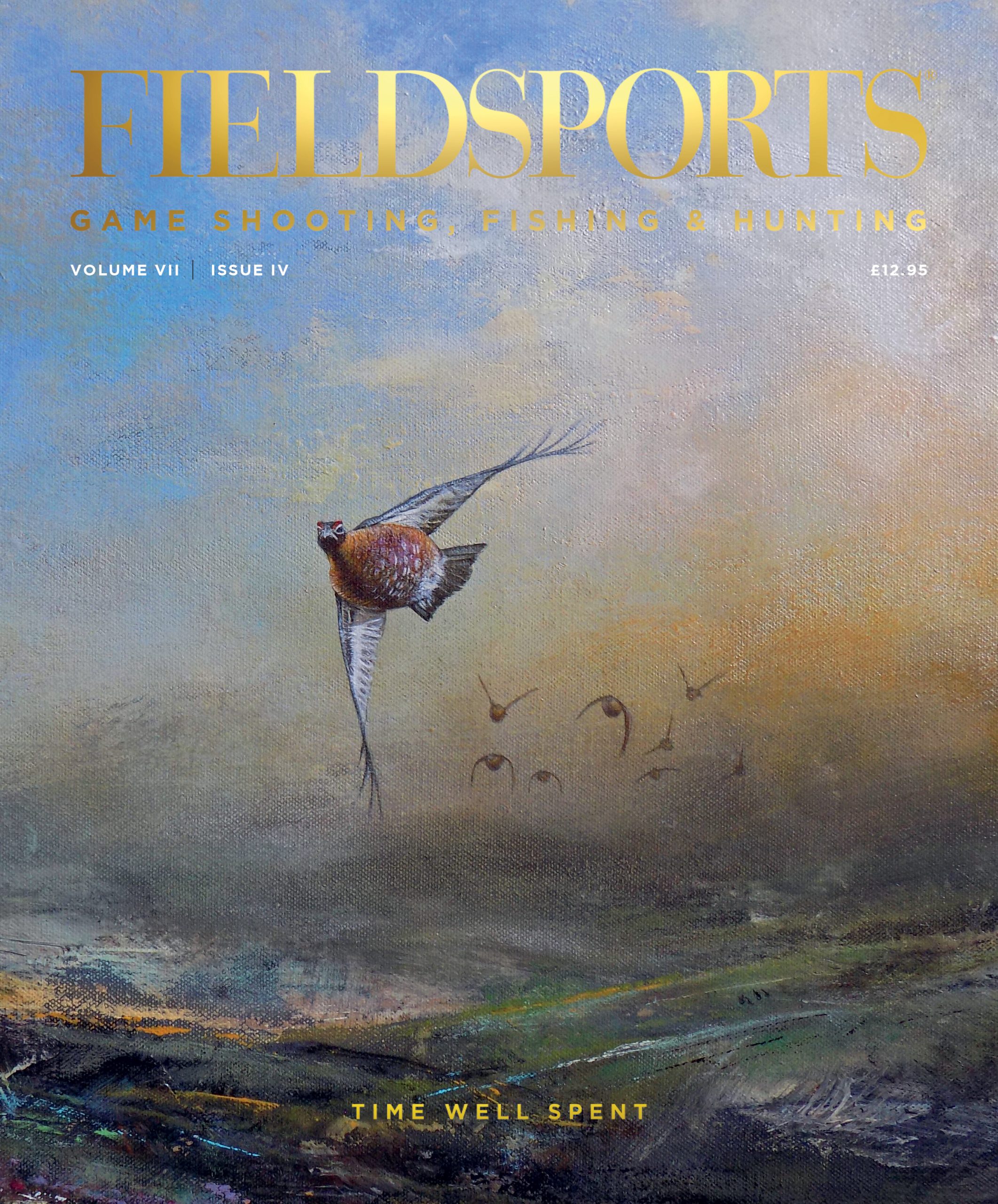- News
- Game shooting
- Fly fishing
- Big game
- Sporting art
- Guest editors
- Gear
- Competitions
- More
-
-
More
-
- No posts selected.
-
-
-
-
★ Win a Schöffel Country shooting coat for everyone in your syndicate worth up to £6,000! Enter here ★
Arthritis in focus

In many ways, dogs are like humans, and like humans, dogs can get arthritis. Unlike us, however, they cannot voice their pain. This is why it is important for any dog owner to know the associated symptoms. It is equally important to understand the different causes and how this most debilitating of disorders can be prevented.
There are many treatments for arthritis, but there is no doubt that the best one is prevention. This starts before birth with careful selection of the parents, who should have been hip and elbow scored.
From day one a puppy should be raised with adequate nutrition. They should receive carefully regulated exercise, and owners should be careful to ensure young dogs do not become overweight, as added weight puts strain on the cartilage and can cause arthritis.
There is now also evidence that early neutering should be avoided. When it comes to neutering dogs we have to consider the effects of taking the hormone source away. For example, in male dogs we have to take their adult size into account and how much growing they still need to do at the age we would like to neuter. A small cocker spaniel, for example, will have nearly reached his adult size by 8 months old so he no longer needs testosterone to grow. However, a large labrador is potentially only just at 50 per cent of his adult size by 8 months old and therefore needs his testosterone longer to allow his long bones to develop fully. Removing testosterone before growth is complete will delay growth plate closure and put pressure on joints as a result, increasing the risk of conditions like arthritis.
There are numerous symptoms of arthritis. Dog owners should look out for the following: limping; being unable to run/play; difficulty getting up from a laid down position; yelping/barking when touched; difficulty climbing stairs; difficulty jumping into cars; slow walking. It is easy to put such symptoms down to ‘old age’, but if these symptoms are observed it is well worth visiting a vet to check.
Treatment for arthritis varies. The solution needn’t always be costly medication. As with prevention, management is the best policy. Ensuring your dog is fed a good quality diet, not allowed to become overweight, is exercised sensibly, allowed rest to recover, and kept warm, will all help manage arthritis. Adequate rest is crucial; working dogs always want to please and many will work themselves to exhaustion for their handlers. Supplements can also prove beneficial, especially if started early.
Supplements containing chondroitin and glucosamine, which occur naturally in joint cartilage, are valuable and can help prevent cartilage breaking down as well as stimulate its repair mechanisms.
Many patients will benefit from anti-inflammatory medication. The most commonly used are non-steroidal anti-inflammatory drugs (NSAIDs), although these should be used at the lowest dosage possible – as with all medication, they do carry side effects.
Another beneficial therapy for arthritis is hydrotherapy, which has been clinically proven to benefit dogs suffering from a variety of medical and non-medical conditions to aid rehabilitation. The non-weight-bearing exercise of damaged or repairing limbs and supporting tissue helps speed up recovery. Crucially, hydrotherapy can help prevent muscle wastage which can occur very quickly if a painful limb is not being used properly, hindering recovery post surgery as the limb has to repair itself as well as correct muscle, tendon, ligament and soft tissue immobility.
Our dogs work so hard for us during their time. It is only fair that we look after them the best we possibly can into retirement and old age.
Related Articles
Get the latest news delivered direct to your door
Subscribe to Fieldsports Journal
Elevate your experience in the field with a subscription to Fieldsports Journal, the premium publication for passionate country sports enthusiasts. This bi-monthly journal delivers unparalleled coverage of game shooting, fishing and big game across the UK and beyond.
Each issue offers a stunning collection of in-depth features, expert opinions and world-class photography, all presented in a timeless yet contemporary design.
Save 10% on shop price when you subscribe, with a choice of packages that work for you. Choose from Print & Digital or Digital only with each journal delivered directly to your door or via the app every other month, plus access to past issues with the digital back issue library.







